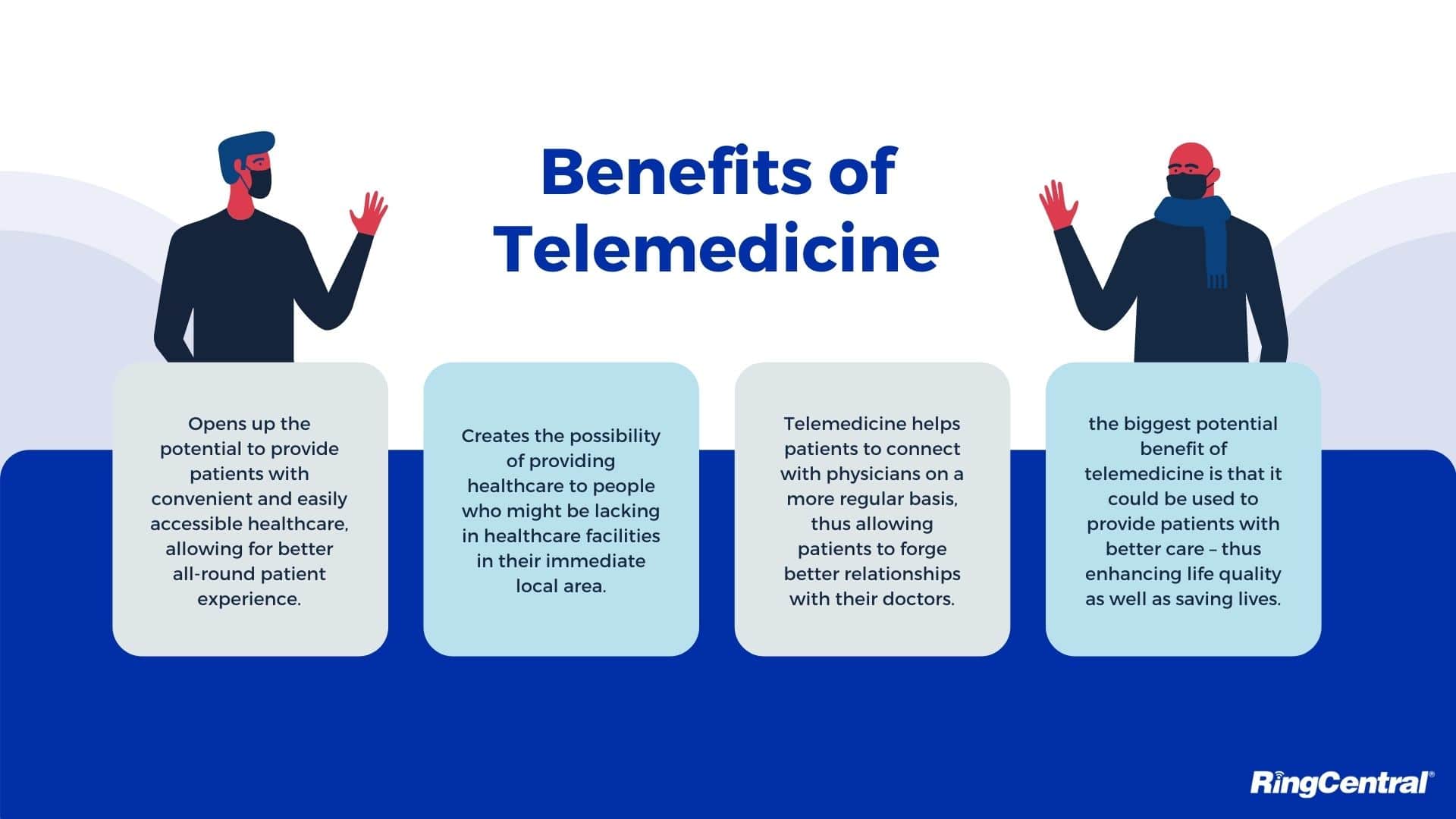Benefits of Telemedicine
Telemedicine has emerged as a revolutionary approach in healthcare, providing numerous benefits for both patients and healthcare providers. In this article, we will explore the advantages of telemedicine and how it is transforming the way healthcare is delivered.
Improved Access to Healthcare
One of the key benefits of telemedicine is the improved access to healthcare services. With telemedicine, patients can receive medical consultations and advice from the comfort of their own homes, eliminating the need for travel and reducing the burden on transportation. This is especially beneficial for individuals living in remote areas or those with limited mobility.
Convenience and Time-Saving
Telemedicine offers unparalleled convenience, allowing patients to schedule appointments at their preferred time without the hassle of waiting rooms. With telemedicine, there is no need to take time off work or spend hours in traffic to reach a healthcare facility. This time-saving aspect is particularly valuable for busy individuals and those with demanding schedules.
Cost-Effectiveness
Telemedicine can significantly reduce healthcare costs for both patients and providers. By eliminating the need for in-person visits, telemedicine reduces expenses associated with travel, parking, and other related costs. Additionally, telemedicine can prevent unnecessary hospital admissions and emergency room visits, leading to substantial cost savings for patients and the healthcare system as a whole.
Enhanced Patient Engagement
Telemedicine promotes active patient engagement in their healthcare journey. Through virtual consultations, patients have the opportunity to discuss their concerns, ask questions, and actively participate in decision-making regarding their treatment plans. This increased engagement can lead to better health outcomes and patient satisfaction.
Continuity of Care
With telemedicine, patients can maintain continuity of care, especially for those with chronic conditions requiring regular follow-ups. Virtual visits allow healthcare providers to monitor patients’ progress, adjust treatment plans, and address any concerns in a timely manner. This seamless continuity of care ensures that patients receive ongoing support and guidance, leading to improved health outcomes.
Efficient Resource Allocation
Telemedicine optimizes resource allocation within the healthcare system. By leveraging technology, healthcare providers can efficiently allocate their resources, including medical professionals and equipment, to reach a larger number of patients. This helps to alleviate the strain on healthcare facilities, particularly in situations where there is high demand or limited resources.
Improved Health Outcomes
Studies have shown that telemedicine can lead to improved health outcomes. By providing timely access to healthcare services, telemedicine enables early detection and intervention for various health conditions. This proactive approach can prevent the progression of diseases and improve overall patient well-being.

Telemedicine offers a multitude of benefits, ranging from improved access to healthcare and convenience to cost-effectiveness and enhanced patient engagement. With its ability to overcome geographical barriers and streamline healthcare delivery, telemedicine is revolutionizing the way we receive medical care. Embracing telemedicine can lead to better health outcomes, increased efficiency, and a more patient-centric healthcare system.
Frequently Asked Questions about the Benefits of Telemedicine
1. What is telemedicine?
Telemedicine refers to the remote delivery of healthcare services using telecommunications technology.
2. What are the key benefits of telemedicine?
Telemedicine offers several benefits, including:
Increased access to healthcare
Convenience and flexibility for patients
Reduced travel time and costs
Improved management of chronic conditions
Enhanced collaboration between healthcare professionals
3. How does telemedicine improve access to healthcare?
Telemedicine eliminates geographical barriers, allowing patients to receive medical care regardless of their location.
4. Can telemedicine save patients time and money?
Absolutely! By eliminating the need for travel and reducing wait times, telemedicine can save patients both time and money.
5. How does telemedicine help in managing chronic conditions?
Telemedicine enables regular monitoring of patients with chronic conditions, facilitating early intervention and preventing complications.
6. Does telemedicine improve patient satisfaction?
Yes, telemedicine offers convenience, reduced waiting times, and personalized care, leading to higher patient satisfaction levels.
7. Can telemedicine be used for mental health services?
Absolutely! Telemedicine has proven to be effective in providing mental health services, allowing patients to access therapy from the comfort of their homes.
8. Is telemedicine secure and private?
Yes, telemedicine platforms prioritize patient privacy and employ encryption and other security measures to ensure confidentiality.
9. Does telemedicine reduce the risk of exposure to contagious diseases?
Yes, telemedicine reduces the need for in-person visits, minimizing the risk of exposure to contagious diseases for both patients and healthcare providers.
10. How does telemedicine enhance collaboration between healthcare professionals?
Telemedicine enables healthcare professionals to easily share patient information, consult with specialists, and collaborate on treatment plans, leading to better patient outcomes.




